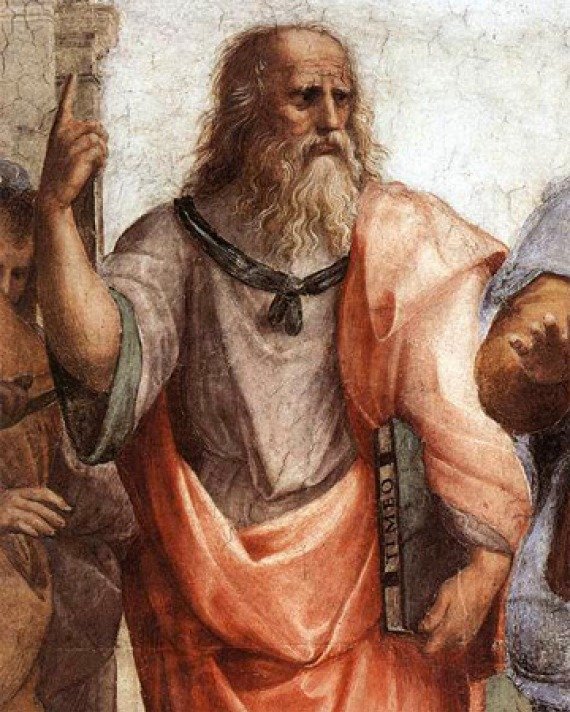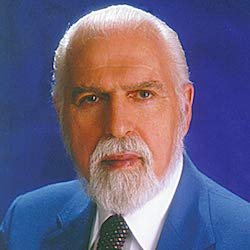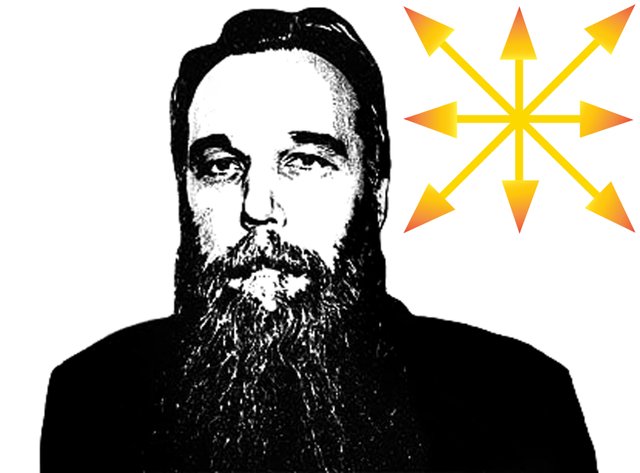The Modern American Right

"...Plato's political programme, far from being morally superior to totalitarianism, is fundamentally identical with it."—Karl Popper (The Open Society & Its Enemies)
There are clear parallels between Plato's politics and Edmund Burke's conservatism. Burke, like Plato and Marx, was a historicist. Unlike Marx, Burke and Plato have a right-wing historicist political ideology. Per Plato, all social change or "progress" is actually degradation, degeneration, and corruption. We must arrest or halt change to keep society from degenerating. This, to Plato, meant that the State must be totalitarian in nature, wielding absolute power in order to prevent social change; individual liberty must be completely abolished. Burke's philosophy of history was essentially identical to Plato's. All social "progress" is really degradation and should be slowed as much as possible. The difference being that Plato wants to stop social change altogether and Burke wants change to be slow and gradual. Thus, Burke's politics is authoritarian but not totalitarian. The similarity is not accidental. Burke was a Christian conservative and Christianity is a form of Platonism.
Christian theology (especially Western Christian theology) comes more from Plato and Plotinus than from the Bible. As a good Christian, Burke was a disciple of Plato rather than Christ—because that's what "Christian" really means, a devout Platonist! As a Christian/Platonist, Burke was opposed to social progress. But, unlike Plato, he didn't want to stop social change altogether but merely to slow it down. To Burke, progress is inevitable. Trying to stop it altogether merely leads to insurrection and ends up hastening social change, so it's better to compromise and allow for gradual social change.
Conservatism was not without its positive insights (e.g. the value of stability and security; the recognition of the problematic nature of revolution and insurrection), but it also logically leads to totalitarianism when carried too far. Burke's philosophy of history also has a striking similarity to Marx's dialectical materialism—social change is an inevitable result of new technologies, economic developments drive political changes, and social progress inevitably follows from natural progress of a more economic nature. Burke was kind of a dialectical materialist, only he thought that divine providence was somehow guiding the soical progress. There was a naturalist/materialist element, but it was a secondary cause back of the primary cause (i.e. divine providence). This, of course, is somewhat incoherent and self-contradictory, as the naturalist aspect can't easily be reconciled to the idea of divine providence and neither really mesh well with the Platonistic idea that all "progress" or change is bad and amounts to corruption and decay.

Like I said, carried too far, Burkean conservatism could easily become akin to Platonist totalitarianism, but Burke's conservatism didn't carry it that far—he was a classical liberal rather than a fascist like Plato. Nevertheless, ultra-conservatives like R. J. Rushdoony and Gary North, who identify as "theonomists" or "reconstructionists," do come close to carrying it that far. They seek to impose biblical law in America. Yet, they really are honest conservatives to the core. Their extremist ideology is just conservatism taken to its logical conclusion. Their ideas are perfectly consistent with the principles of Burke, even though Burke would have despised such an ideology. If all law derives from God and the Bible is the Word of God, theonomy logically follows. Burke was simply being inconsistent in not carrying his conservatism to the point of theocracy! The Bible is the Word of God and ought to be the basis of all legislation. The Original Sin introduced corruption, death, decay, and change into the world. All change after the Fall is corruption and degredation. The further we move in the direction of modernity, the further we move away from the Garden of Eden. We must slow down social progress, bring it to a halt, or even undo it if possible.
The totalitarian nature of the rightwing in America today is, although in some sense completely out of touch with conservative principles, somewhat logically connected to conservatism. They reject the anti-revolution and anti-insurrection aspects of conservatism, but cling to other aspects of it. Their desire is to halt social change, impede social progress, and even turn back the clock—get the queers back in the closet, the immigrants to go back where they came from, the women back into submission, and the blacks back onto the plantations. That's what the Republican Party really is for today. The Republican Party isn't about conservatism but rather about regressivism—it wants to undo the good social progress that has already been made. It wants to restore the patriarchy, the racial hierarchy, the tyranny of the ruling class. The Republican Party is for the return of cis-hetero-patriarchal white supremacy!

But the modern right is eclectic, far too diverse and discombobulated to be summarized in such a concise way. There's the right-wing libertarians and anarcho-capitalists, who don't want to change things back but want to make a new society based on propertarian principles. These right-wing anarchists want to abolish the State by privatizing it—private police, private courts, private militias. Then there's a different sort of right-wing anarchism in the Alt-Right: the discordians and chaotes, chaos magick practitioners. These folks worship Discordia (mostly jokingly) and seek to spread the chaos of negative "anarchy." They want Trump because of his incompetence, because they want the State and the economy to collapse. But they're anarcho-fascist. These right-wing anarcho-fascists want to collapse the system just to replace it with a totalitarian ethno-nationalist system. This, of course, is compatible with the propertarian anarcho-fascism of the anarcho-capitalists. Panarchy and pan-anarchism have been put forth as a way of uniting these trends.

The American right is simultatneously united and not united. They've come together under Trumpism, the banner of the dumbass, xenophobic, misogynist dictator, but they have no shared principles other than misogyny and xenophobia. Their wider political goals conflict. The regressives and ultra-conservatives want to turn the clock back and restore the stable class rule of olden days—a return to Southern agrarianism and the dream of a Confederate utopia or else to a midievalist utopia—, but the anarcho-fascists have an entirely different agenda that directly conflicts with that agenda. The anarcho-capitalists want mass consumerism and propertarianism, plutocracy without a centralized government, and the anarcho-fascists and Alt-Right want to destroy the American republic in order to replace it with an ethno-nationalist single-party polity (a synthesis of Hitler's ethno-nationalism and Lenin's one-party totalitarian State). This is essentially what the American right is now: a muddled mess of garbage ideologies united around misogyny, racism, and idiocy for the time being. The shit-bags advocating these garbage ideologies are at the wheel, steering the right, but the voting base is mostly just duped ignorant folks that don't know what's going on. They're on board because they share the Alt-Right's prejudices towards queers, immigrants, and black people.
The American right is the greatest threat to liberty and human decency on the planet. Unfortunately, I'm not really sure what is the best way to fight back against it.
I think the American right is as bad as the American left.
When you talk about progress and Plato is opposed to it, how are you measuring progress?
Plato's Republic makes a lot of sense if we take Socrates as being ironic. His own prefered social organisation, by his own admission, is one of bucolic simplicity - The City of Pigs. No one in their right mind would want to live in the Republic, the 'just city state' in which citizens are deprived of art and told 'noble lies' to keep them passive. Socrates is guiding his young acolytes by means of seemingly naive questioning to see that that is where unbridled desire [consumerism] leads. [IMO!]